By Svetlana Nenadović-Glušac / D&C magazine Austria
I am an active person with a positive attitude, but the key to our success lies in the team of people who accompany me. They are very capable and above all, committed professionals.
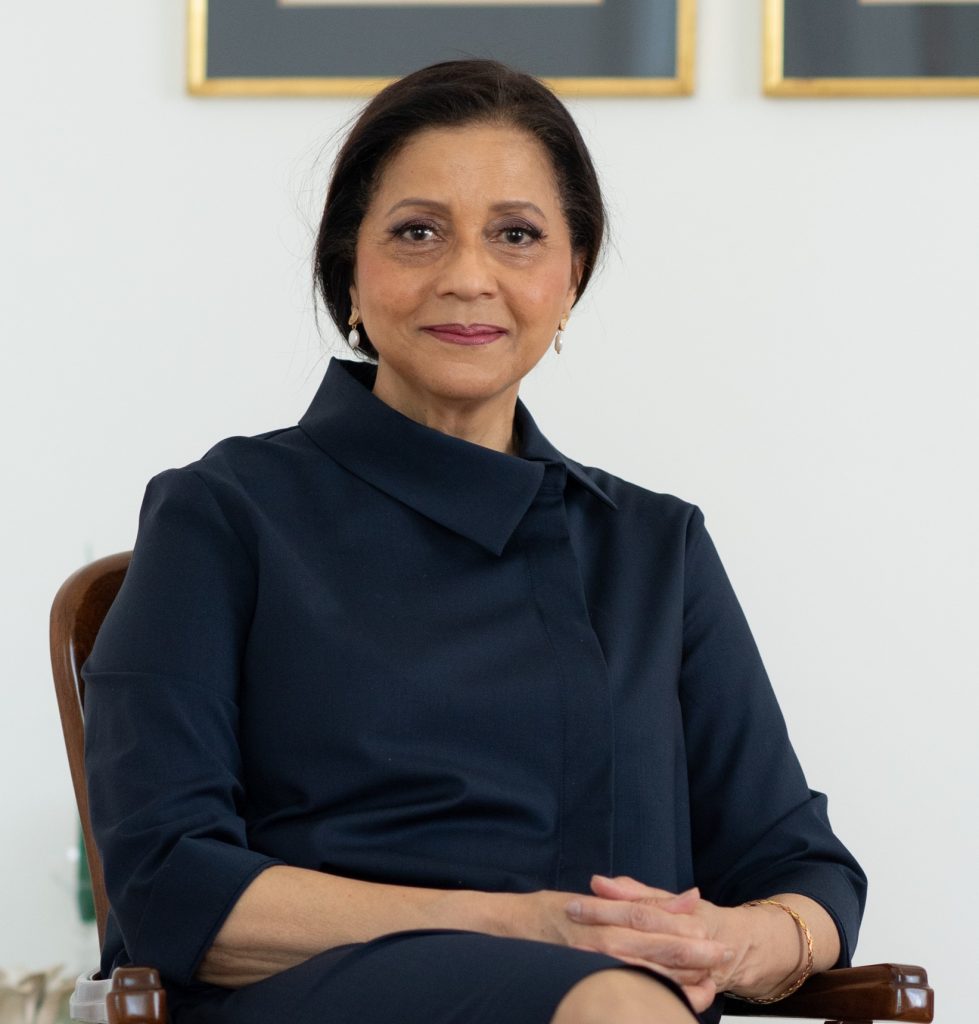
We spoke with H.E. Lourdes Victoria-Kruse, Ambassador of the Dominican Republic to the Republic of Austria and Permanent Representative of the Dominican Republic to the international organizations in Vienna. Ambassador Victoria-Kruse is also an accredited ambassador to Serbia, Slovenia, Hungary and Bulgaria, and the Vienna Consular Section of the Dominican Republic in Vienna which covers eleven countries.
Ambassador Kruse also talked about the election in the Dominican Republic, the plans of the new government and the impact of coronavirus pandemic on the economy. She also spoke about the upcoming tourist season in one of the favourite travel destinations for Europeans in the winter months and what measures has the Dominican Republic implemented to ensure the safety of tourists during the pandemic.
An election was held in the Dominican Republic in August 2020. How will the election result affect your country’s foreign policy?
Indeed, on August 16, Luis Abinader Corona took over the presidency of the Dominican Republic and entrusted the leadership of Dominican foreign policy to the current Foreign Minister, Mr Roberto Álvarez.
The new administration has devised an important plan titled “A Foreign Policy in the Government of Change”, which aims to reorganize, professionalize and modernize the country’s foreign policy. In this regard, this proposal is based on three main objectives: first, the protection of Dominican women and men abroad, second, boosting exports and attracting investments to create the 600,000 jobs as President Abinader had promised before the pandemic broke out and third, the promotion of democratic values and human rights enshrined in the Dominican constitution.
With this plan, we have reaffirmed our strong commitment to strengthening Dominican foreign policy. Concerning our relations with Europe, we endeavour to boost our relations through the Ministry of Foreign Affairs efficiently and transparently so that we can further promote the bilateral relations and trade agreements we have already concluded.
Europe continues to be one of the most important links for our country, given the relevance of the multiple contexts that bind us together – from the economic to trade, cooperation, culture, migration, politics, development and security. Therefore, from now on, we will permanently strive to create more security and trust for European investments in our country and to implement appropriate initiatives that effectively contribute to freeing the productive forces of the Dominican export sector.
With regard to international trade, we want to take advantage of the large markets to which we have preferential access, as well as the destinations which, due to their size and demand, have greater potential for our exports. The 2021Trade Promotion Plan was launched recently, which aims to optimize the trade promotion services and attract investments with the support of the country’s diplomatic and consular corps accredited abroad.
The aim is to strengthen cooperation with the national and international private sector in order to develop coherent plans with the view of boosting direct private investments and exports, create a significant number of new jobs and reduce the trade deficit. Export is now one of the main axes for the recovery of our economy.
Furthermore, and in terms of economic affairs and international cooperation, we propose the adoption of a regulation to define, direct and manage trade negotiations and non-refundable international cooperation.
On the other hand, we intend to double our efforts on utilizing the Dominican Republic’s privileged geographic location in the centre of the Caribbean and the Americas, by working with all the authorities involved in creating our national brand, as well as adopting innovative public policies that will promote the sustainable growth of our economy through job creation, new direct investments and a significant increase in the number of tourists.
As part of this strategy, we envisage the development of a cultural policy that will contribute to the achievement of the country’s goals abroad by highlighting the values and traditions that characterize Dominican society.
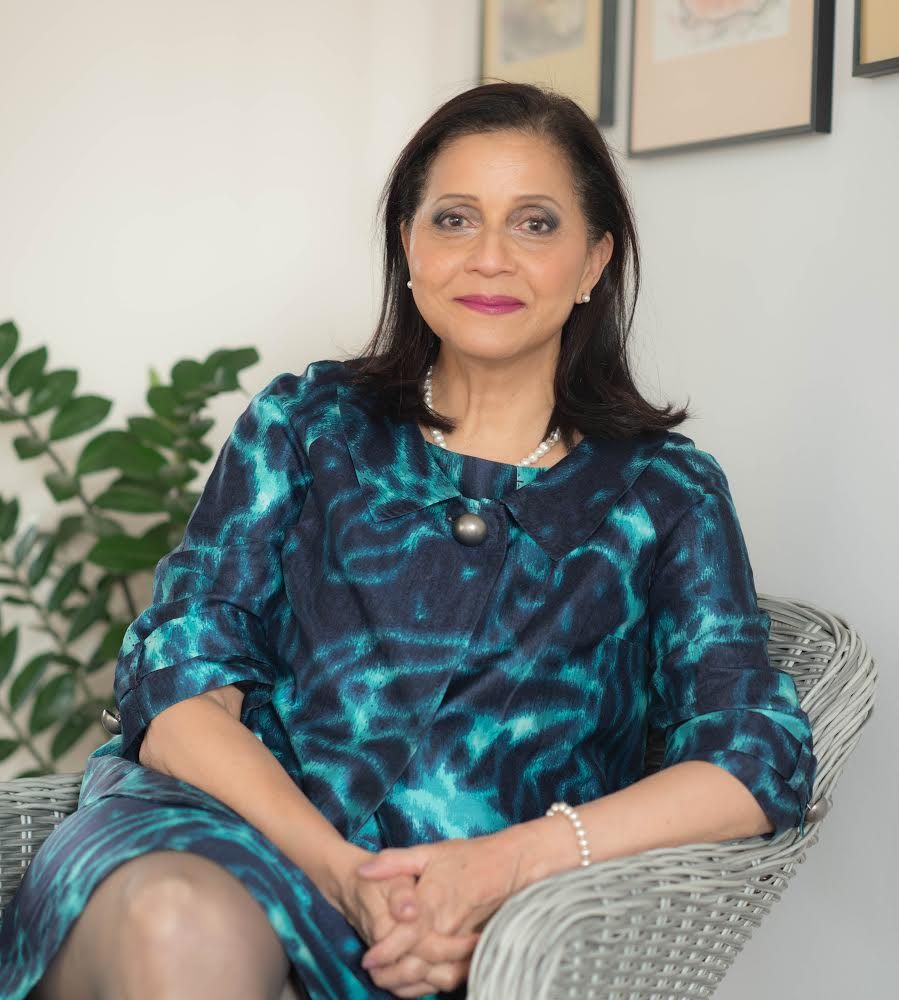
You gave a deeply emotional speech at the UN in Vienna about the Mirabal sisters, who became symbols of the rebellion. What is the position of women in today’s society and is it difficult to be a woman, a mother and a diplomat at the same time?
It was a very emotional moment indeed, as it should. The Mirabal Sisters are arguably one of the most significant symbols of popular and feminist resistance worldwide, and this makes all Dominican women proud.
In today’s society, it is obvious that an increasing number of women are occupying management and decision-making positions. We have integrated into our consciousness the values related to the new role that we have to play in society: involve ourselves into professional life, climb the hierarchical work structure, take on the responsibility of keeping household and raising our children without neglecting our well-being.
That brings me to the second part of your question. It is certainly a challenge to reconcile the roles of woman, mother and diplomat, but in my opinion, it is precisely this ability to multitask that allows us to structure pragmatic and innovative solutions to the challenges of everyday life.
We are talking about a new generation of active and autonomous women who are exposed to very different realities depending on the culture, geographical area or social situation in which they find themselves. However, we must not forget that despite the progress we have made in decades of fighting for our rights, there is still a long way to go. We are still in a situation of inequality in areas such as politics, education and work.
In this regard, I fully identify with the statement made by Ursula Plannick, the former Austrian Foreign Minister, that we must continue to work actively to ensure that women in all areas have access to management positions so that they can fully exploit their potential and skills.
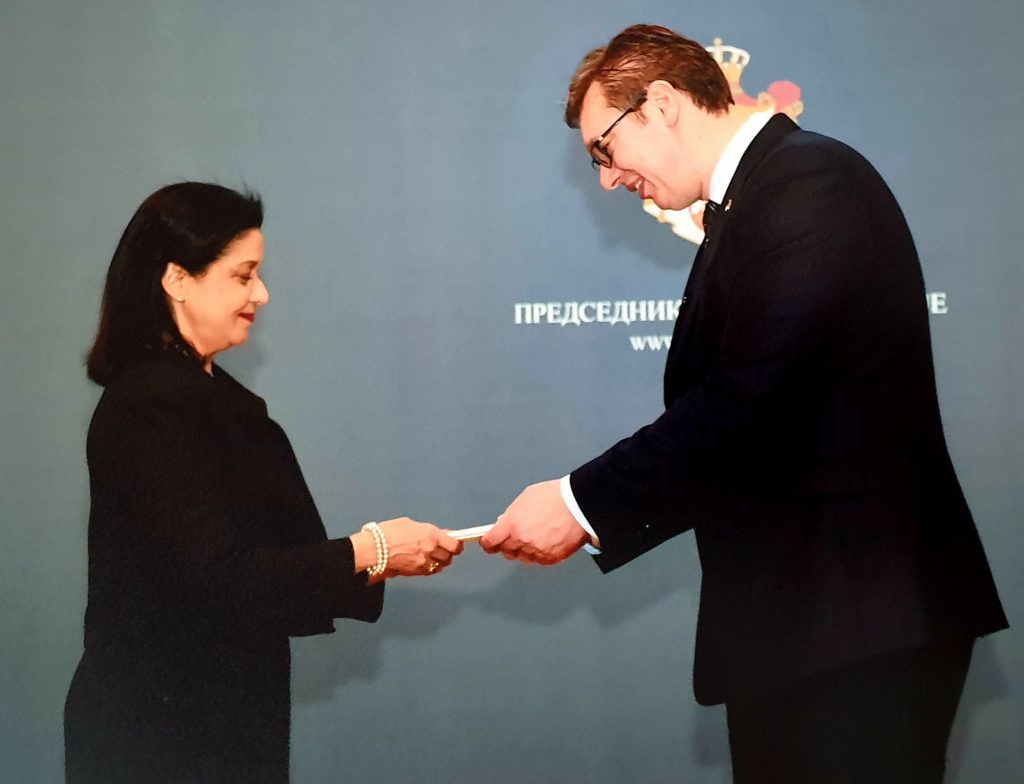
What is the current situation in the Dominican Republic in terms of the coronavirus epidemic, and will the consequences of the pandemic leave a deep mark?
First and foremost, the Dominican Republic is committed to protecting the life and health of our citizens at home and abroad and has mitigated the economic impact with various initiatives. We have set an example in the region in dealing with the Covid-19 pandemic, which has been recognized by the World Health Organization (WHO).
Indeed, the WHO underlined that the country reflected the increased commitment to political leadership, collaboration and partnership between the public and private sectors, with the emphasis of its actions on strengthening liaison identification, surveillance and prevention and containment of infection.
This background has led to a systematic reduction in the number of infections and to the preservation of our health system, which has never collapsed during these months. This helped us to come up with a plan to revitalize responsible tourism that will involve a large public investment.
Our authorities have always been adhering to the WHO’s guidelines and their Strategic Preparedness and Response Plan and have immediately integrated them into the national response plan. Of course, the Covid-19 pandemic will have a negative impact on all global economies, but I can assure you that our authorities are working tirelessly to counter such effects and get back on the path of economic growth in the shortest possible time.
Indeed, thanks to its diversification – tourism, remittances and free zones – our economy has not suffered as much damage as others in countries similar to ours.
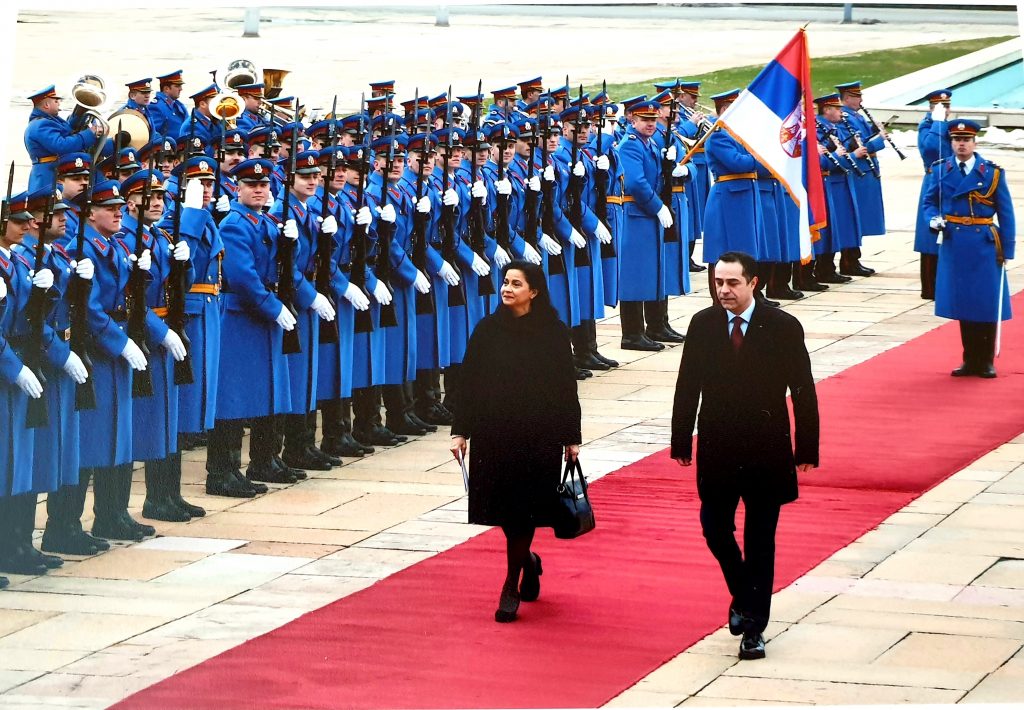
Tourism is one of the most developed industries in the Dominican Republic. What do Dominican experts think about the kind of effects that the pandemic will have on tourism?
The cumulative tourist flow for the period January-September 2020 was 1,743,480 non-resident visitors, i.e. 3,244,218 fewer travellers (-65.0%) than in the same period of the previous year. The significant decline in the accumulated influx of tourists in 2020 is explained by the COVID-19 pandemic and the associated prevention and containment measures, which include border closings and restrictions on non-essential travel to the Dominican Republic and from the Dominican Republic to the most popular tourist destinations worldwide.
As for the expectations for the coming months, the arrival behaviour of non-resident passengers in the Dominican Republic will be determined mainly by the global development of the pandemic and the availability of an effective vaccine against the coronavirus, as well as by the provisions of the September executive decree in combination with the reconstruction plan announced by the Tourism Council.
These include implementing health security protocols in accommodation facilities, tax breaks, monetary and financial measures to make the growth of small and medium-sized tourism businesses viable, as well as implementing a temporary travel assistance plan with emergency health insurance, telemedicine, flight changes and extended stays in the event of COVID- 19 infection.
Likewise, an incentive plan for domestic tourism will stimulate the local market, which includes discounts of 20% to 50% in major hotel chains and financing options of 6 to 12 months.
It is important to highlight that the arrival of passengers shows an incipient bias towards recovery after the airports reopen, as the proportion of non-resident foreigners who visited the country in September was 18.7% of the total for the same month last year and was thus above the shares of 11.5% and 12.6% recorded in July and August concerning the same reference periods of 2019.
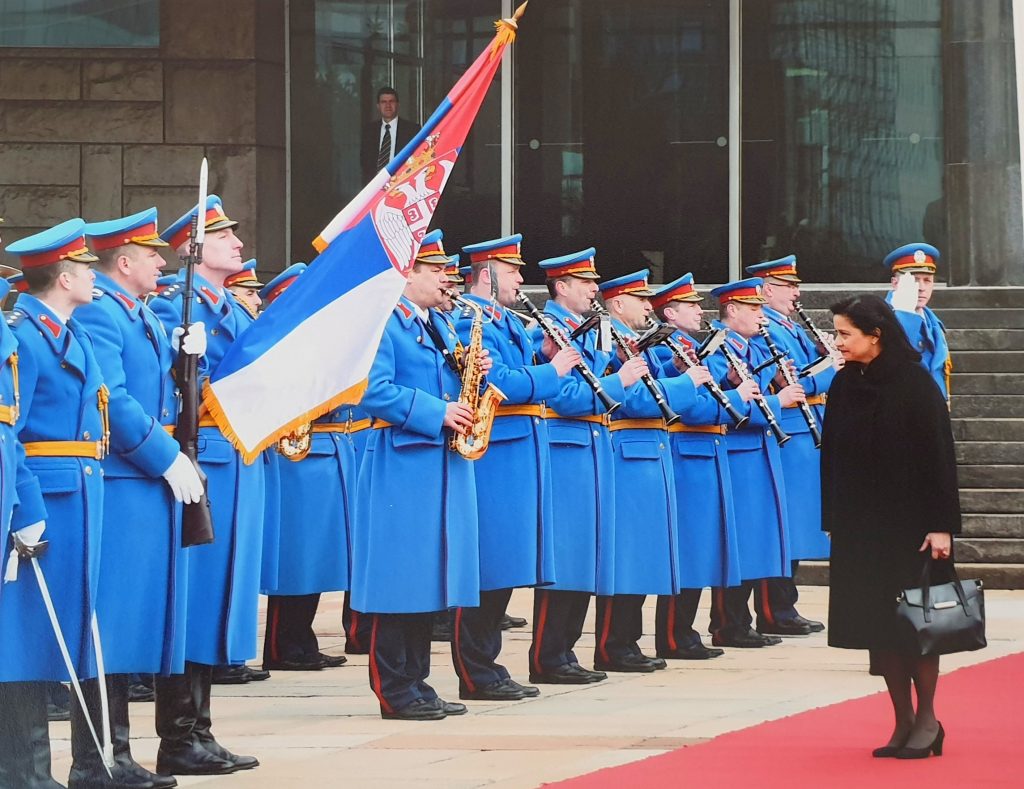
What are the plans regarding regulations and options for tourists in light of the pandemic situation?
Our country has a plan to restore tourism with a focus on health security, as announced by His Excellency the President of the Dominican Republic, Mr Luis Abinader Corona. The plan came into effect on September 15th. The Austrian Federal Ministry for European and International Affairs has this documentation.
This plan includes several measures and initiatives to address the challenges facing the tourism industry during the COVID-19 pandemic and to ensure that the Dominican Republic is a safe travel destination that further protects the health, well-being and safety of tourists to demand a sustainable revitalization of the tourism sector.
These measures include new internationally certified health protocols and apply to the entire industry, including restaurants and bars. This tourism revitalization plan includes measures that no country in the region currently has.
The measures include:
– Performing rapid tests on randomly selected travellers upon arrival, such as the diagnostic breath test for COVID-19, eliminating the need for a negative COVID-19 test prior to arrival.
– Social distancing and the use of masks will be mandatory during the stay.
– All tourists staying at hotels are temporarily granted a travel assistance plan that includes coverage for emergencies, telemedicine, accommodation for longer stays and costs for flight changes in the event of infection. This insurance is made available to the visitor free of charge until December 2020 and is 100% paid for by the Dominican State.
– We will ensure that hotel workers stay in the facilities as long as possible. Facilities will implement effective health management with suppliers, contractors and employees. The latter are tested periodically and follow a specific protocol for entering and exiting the facilities.
– The work regulations are adapted to minimize and reduce the risks for employees.
This protocol has been certified by the Bureau Veritas of the World Travel and Tourism Council and is in the process of being certified by Safe Travels, both of the world’s leading certification bodies in the sector.
Recovering tourism
The aim is to minimize the impact of the pandemic and enable responsible recovery that puts health first, maximizes the potential for job creation and economic growth, and promotes greater sustainable development in the sector. We will also ensure that the Dominican Republic continues to be the number one destination in the region for international travellers, be it for vacation, business travel, investment opportunities or returning to a second home, to name a few.